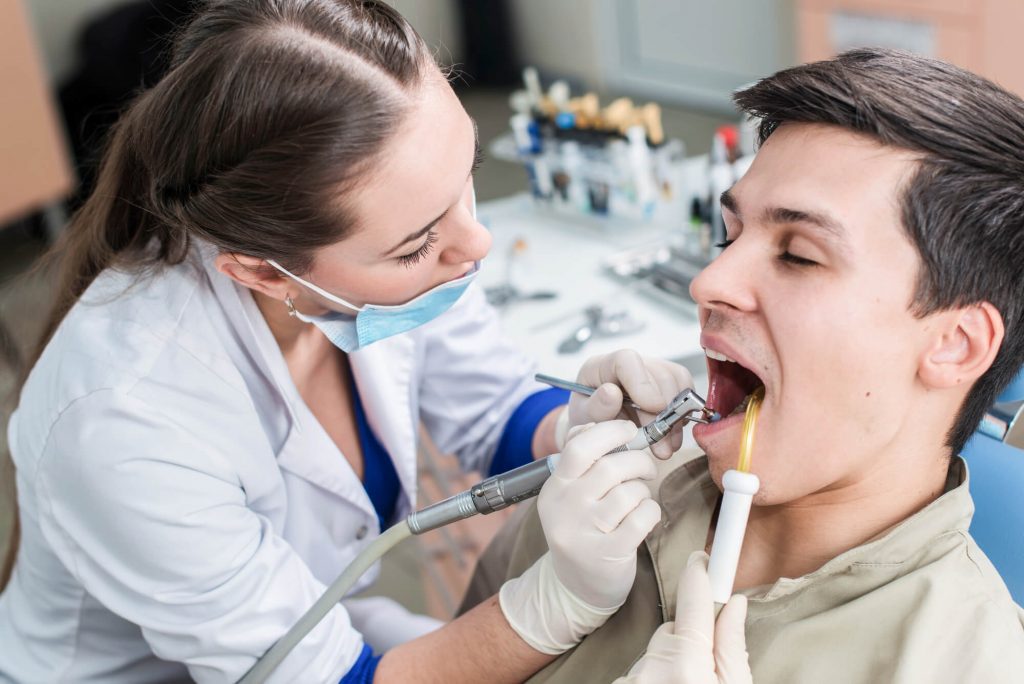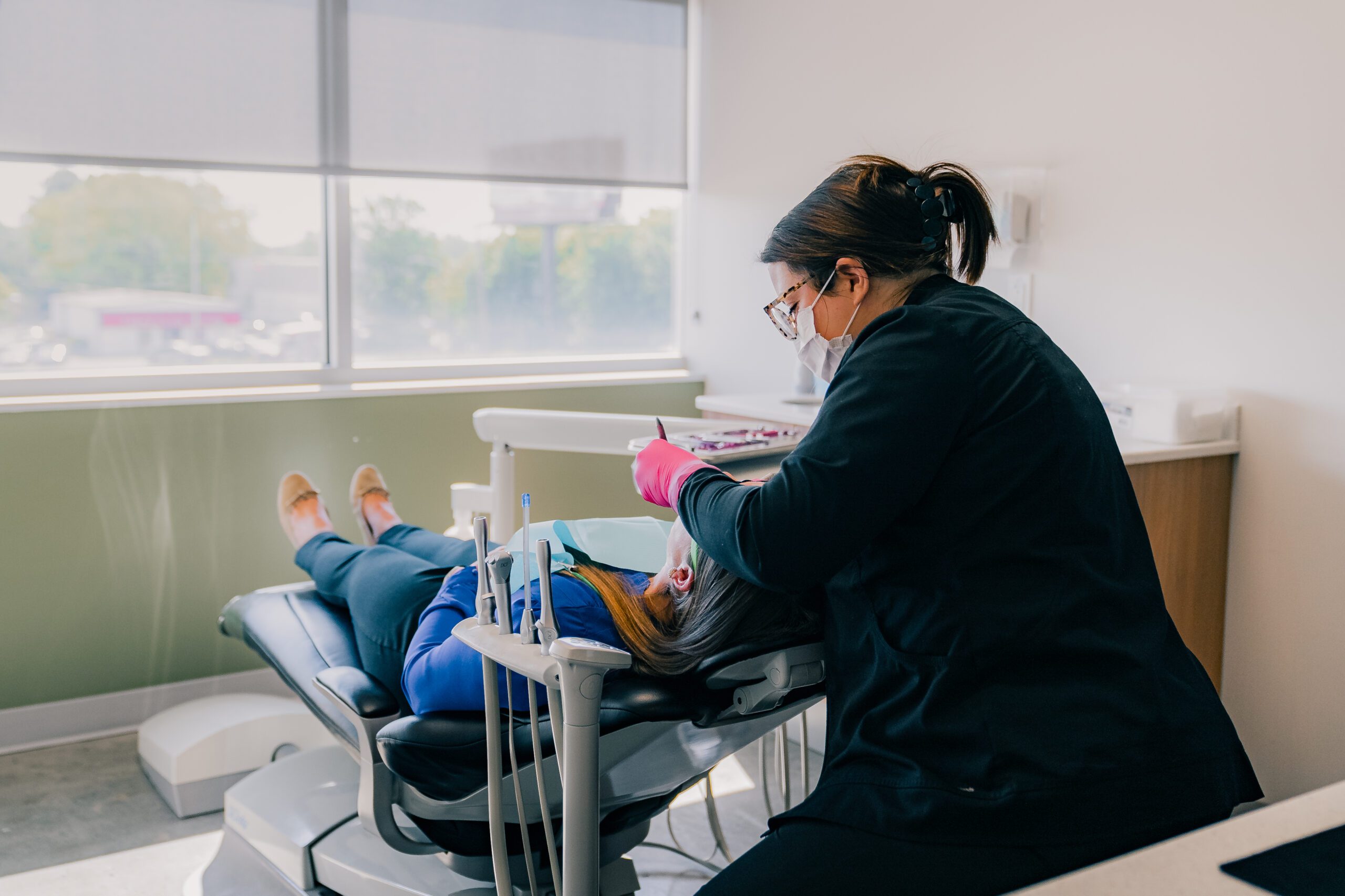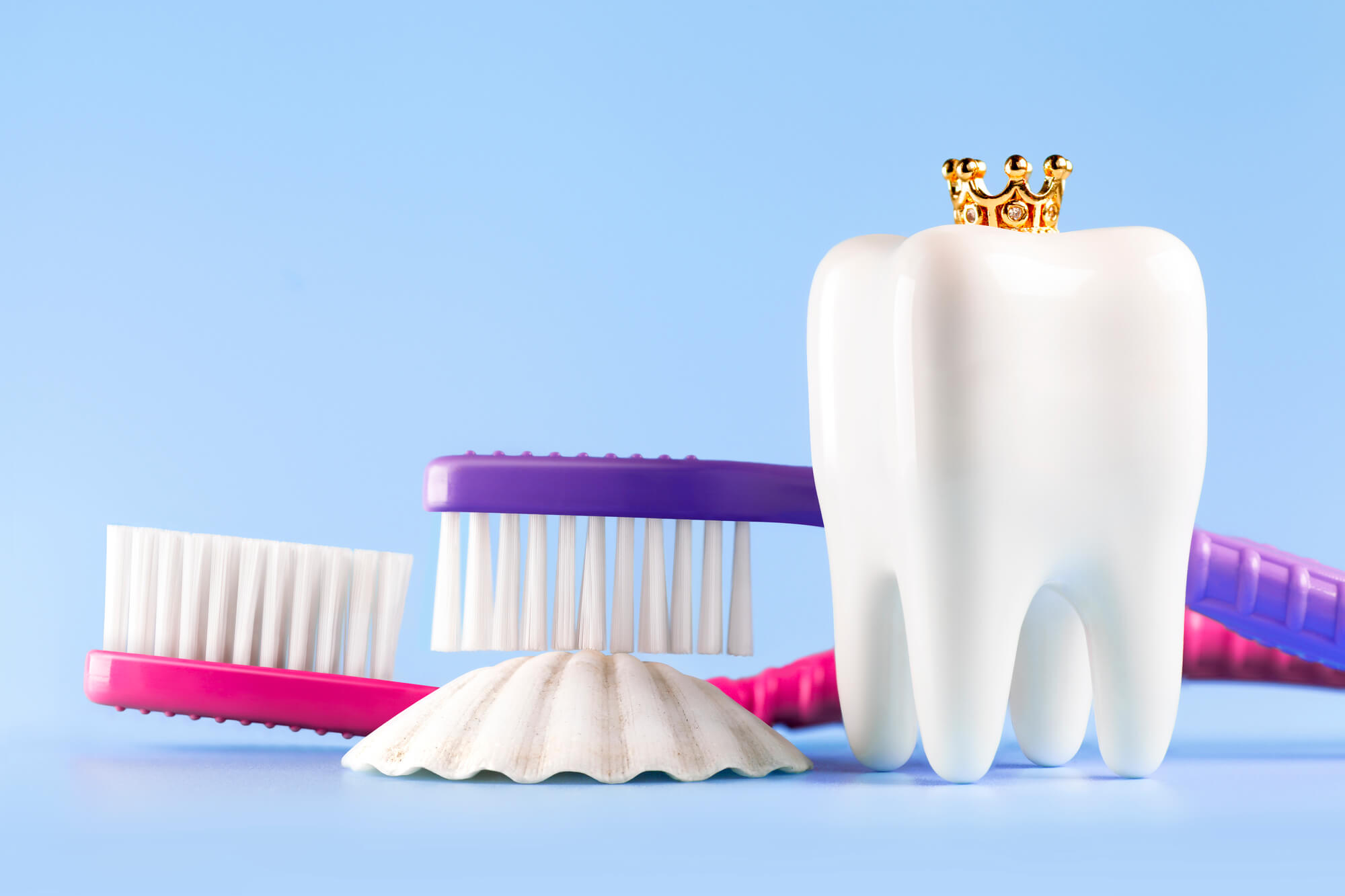What do you do when you experience tooth pain? Some people take over-the-counter painkillers to alleviate the discomfort, while others see a dentist in Wendell. Taking medications is more convenient since it only takes a couple of minutes for the drug to kick in, but it’s not ideal since you’re only dealing with the symptom temporarily and not the root cause. If the cause of the pain isn’t addressed, it will come back.
The problem with taking OTC pain medications is their tendency to be abused and the possibility of drug dependence.
When you constantly experience tooth pain that increases in severity, let your dentist know. You may be suffering from a tooth abscess. Without treatment, the infection can spread to other parts of your body.

How Do Dentists Stop a Tooth Infection?
What Is an Abscessed Tooth?
A tooth abscess is a pocket filled with pus caused by a bacterial infection. It can happen in different areas of your tooth for various reasons. Sometimes it can also affect adjacent teeth and surrounding bone tissues.
What Are the Different Types of Tooth Infections?
- Gingival – The infection is located in your gum tissues and does not affect the tooth.
- Periapical – A periapical abscess is an infection at the tip of the tooth root. It occurs when bacteria infiltrate your tooth through a chip, cavity, or fracture. When bacteria reach the dental pulp (a collection of nerves, blood vessels, and connective tissues within your tooth’s chamber), it can instigate an infection. The infection can spread to the tooth roots and eventually to the surrounding bone, resulting in an abscess.
- Periodontal – The infection is commonly seen in adults. It starts in your bone and the tissues supporting your tooth. It typically stems from periodontitis or gum disease.
Who’s at Risk of Developing a Tooth Abscess?
The following individuals are more susceptible to developing tooth infections:
- Smokers are twice as likely to develop a tooth abscess compared to non-smokers.
- People with dry mouths are prone to tooth infections because bacteria thrive better in mouths with less saliva.
- Individuals who do not brush, floss, and get regular dental cleanings are predisposed to tooth infections.
- People with weakened immune systems will have difficulty fighting off infections.
What Are the Symptoms of a Tooth Abscess?
When your tooth’s integrity and structure are compromised, there’s a tendency for bacteria to get inside your tooth, leading to an infection. How do you know if you have an infected tooth? The following are symptoms of a tooth abscess:
- Pain – an infected tooth can be painful. Patients with a tooth abscess usually complain of a throbbing or gnawing pain or continuous pain that radiates to your neck, jawbone, and ear.
- Tooth sensitivity to hot and cold temperatures
- Gum redness
- Gum swelling
- Bad breath
- Loosening of tooth
- Bitter taste in the mouth
- Swollen upper and lower jaw
- Ill feeling
- Swollen neck glands
- Fever
How Do Dentists Treat a Tooth Abscess?
The goals of the treatment are to stop the infection and prevent tooth abscess-related complications:
- Incision and drainage – In this procedure, your dentist will create a tiny incision in the abscess to drain the pus.
- Root canal treatment – Another way to get rid of the infection and preserve your tooth instead of extracting it is root canal therapy. During this procedure, your dentist will remove the infected dental pulp, disinfect the chamber, and fill it with a material to prevent re-infection.
The dental pulp is only vital while your tooth is growing, but once it has matured, your tooth can function normally without it. Although, after the treatment, you’ll need an artificial dental crown to protect the root canal.
- Tooth Extraction – When a tooth is severely infected, your dentist will have no choice but to remove it. After extracting your tooth, your dentist will drain the pus from the socket.
- Antibiotic Medications – If the infection is restricted to the area with the abscess, your dentist may not prescribe antibiotics. But there are times when antibiotics are recommended to assist with dental treatment.
Can a Tooth Infection Go Away Without Treatment?
Unfortunately, once an infection sets in, it will not resolve on its own unless treated. The tooth pain can stop if the dental pup has died, but that doesn’t mean the infection has ceased. It only means that the nerve isn’t working anymore, so you won’t be able to feel the pain. Without treatment, the infection will continue to spread and destroy nearby tissues.

See a Dentist in Wendell Today!
If you experience tooth pain, don’t ignore it. Our team at Tyron Family Dentistry can check your mouth and assess what’s going on. Our comprehensive oral exam will identify what’s causing the pain so we can design a treatment plan that fits your needs. Contact us today for an appointment.











